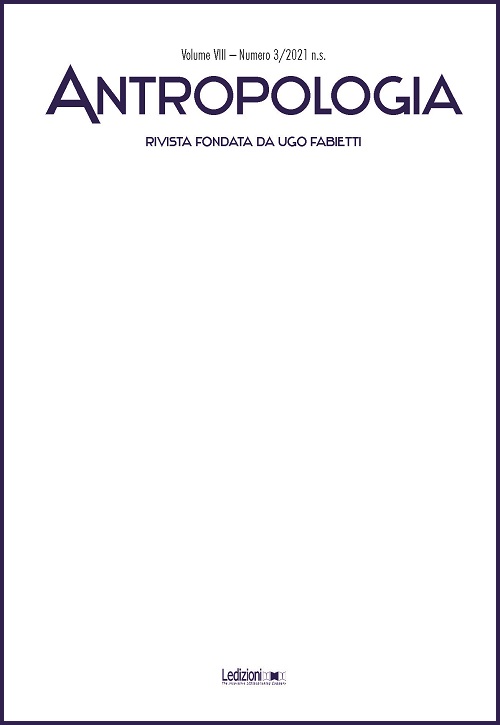“As if” but “Not quite” a State: Austerity, Healthcare, and Stateness in Northern Greece
DOI:
https://doi.org/10.14672/ada2021182627-46Parole chiave:
crisis, provisioning, solidarity, bureaucracy, sovereigntyAbstract
While the Greek economic crisis materialised in sweeping precarity and prolonged deprivation, in certain ways austerity also acted as a locomotive of hopeful transformation. The principles of “solidarity” frame forms of provisioning that seek to contain state retrenchment, ameliorate institutional exclusion, and carve egalitarian spaces. The Social Medical Practice of Xanthi, Northern Greece, accommodates those unable to access public healthcare and constitutes a “solidarity structure”. Yet, contrary to dominant iterations of “solidarity”, Xanthi’s social clinic is firmly embedded in bureaucratic authority and domination. The casting of institutional exclusion into provisional inclusion wields a power that is both modelled on the authority of the state and driven by the logic of the gift. “As if” a state, the clinic provides healthcare, but also generates experiences of exclusion. “Not quite” a state, the clinic occupies a moral high ground that appeals to pity and compassion. I suggest that the clinic’s “as if” and “not-quite-a-state” qualities are not incompatible, but rather speak to the heart of governmentality and sovereign power.
##submission.downloads##
Pubblicato
Fascicolo
Sezione
Licenza

TQuesto lavoro è fornito con la licenza Creative Commons Attribuzione 4.0 Internazionale.
- Gli autori mantengono i diritti sulla loro opera e cedono alla rivista il diritto di prima pubblicazione dell'opera, licenziata sotto una Licenza Creative Commons - Attribuzione che permette ad altri di condividere l'opera indicando la paternità intellettuale e la prima pubblicazione su questa rivista.
- Gli autori possono aderire ad altri accordi di licenza non esclusiva per la distribuzione della versione dell'opera pubblicata (es. depositarla in un archivio istituzionale o pubblicarla in una monografia), a patto di indicare che la prima pubblicazione è avvenuta su questa rivista.




